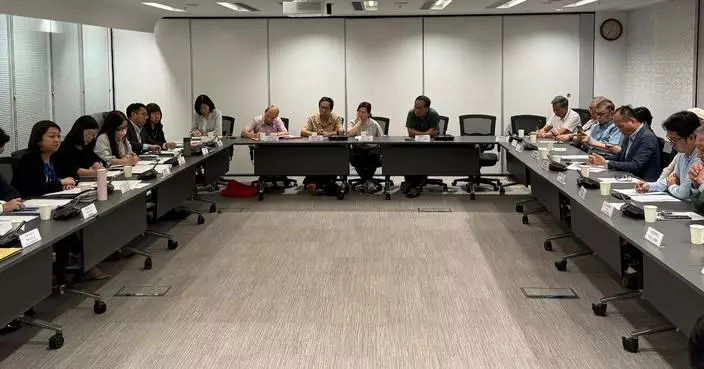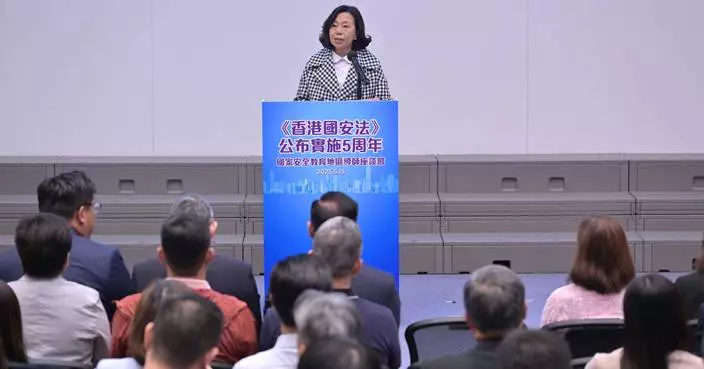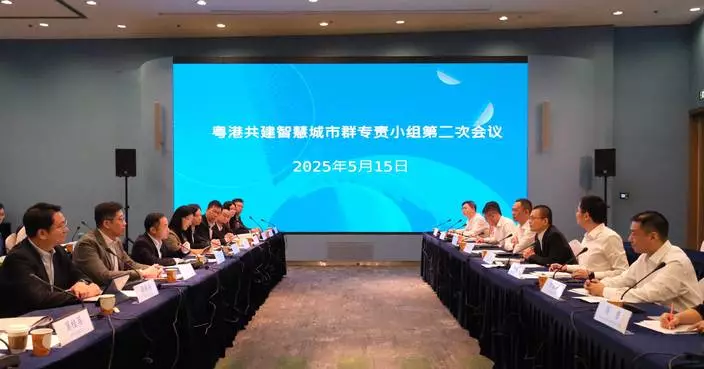Government invites healthcare sector to establish Institute for Medical Advancement and Clinical Excellence
The Secretary for Health, Professor Lo Chung-mau, today (December 20) invited seven major institutions in the Hong Kong healthcare sector to establish the Institute for Medical Advancement and Clinical Excellence (IMACE) as its founding members, with a view to implementing the idea of establishing a professional platform for developing evidence-based clinical protocols and exploring the feasibility of devising service quality and efficiency standards for the public and private healthcare sectors as put forward in "The Chief Executive’s 2024 Policy Address", thereby further enhancing the healthcare standards in Hong Kong.
The seven institutions invited to be founding members are the Hong Kong Academy of Medicine (HKAM), the Department of Health, the Hospital Authority, the Primary Healthcare Commission, the Faculty of Medicine of the Chinese University of Hong Kong, the LKS Faculty of Medicine of the University of Hong Kong, and the Hong Kong Private Hospitals Association. The diverse backgrounds of these invited institutions, which cover aspects such as medical professional standards, public health planning, academic research and development, as well as hospital management in the public and private sectors, will enable the IMACE to gather various types of clinical evidence and widely canvass professional views.
Professor Lo said, "Formulating clinical guidelines for various diseases in accordance with evidence-based medicine can enable healthcare personnel to deliver more appropriate, effective and holistic diagnostic and treatment solutions to patients based on objective research findings. I hope that the healthcare community may make the best use of the professional platform, the IMACE, by actively sharing their experiences and insights, to enable the quality of public and private healthcare services in Hong Kong to scale new heights."
Policy objectives
At present, the types of healthcare services delivered to citizens when they seek consultations largely depend on the experience and expertise of individual medical practitioners. Patients with similar conditions may undergo very different clinical pathways, resulting in potential variance in the standard of care.
With reference to experiences across the globe, clinical guidelines formulated with substantial evidence-based analysis by the healthcare community can help reduce unnecessary or ineffective medical practices, thereby benefitting patients. The establishment of a professional platform can also foster professional exchange among healthcare personnel to learn about and apply the latest technologies in their daily practice, which will be conducive to developing Hong Kong into an international health and medical innovation hub.
In this connection, the Government has taken the initiative to establish the IMACE, which is positioned as a professional-led and evidence-based platform comprising members from both the public and private healthcare sectors in Hong Kong. The IMACE enables the healthcare sector to collect data and cases in an effective manner for detailed deliberations on clinical practices in screening, diagnosis, treatment and management of various diseases, as well as evaluating the efficacy of various medical options (e.g. drugs, medical devices, diagnostic techniques, surgical procedures, non-pharmacological interventions, new medical innovations).
Upon comprehensive deliberation, the IMACE will devise and promulgate clinical guidelines as well as service quality and efficiency standards.
Apart from providing a reference for healthcare personnel to enhance healthcare standards, the relevant clinical guidelines and standards can also serve as public education tools to facilitate citizens' understanding of the healthcare services they may need in the event of different illnesses. Furthermore, the IMACE can make recommendations to the Government on implementing policy initiatives on driving clinical excellence and improving practice quality.
Operation framework
The founding members of the IMACE are invited by the Secretary for Health. In addition to the aforementioned founding members by invitation, and having regard to the specific needs of the deliberation topics, the Secretary for Health also allows the IMACE to invite professional members (e.g. industry associations for medical practitioners and other healthcare personnel, specialists in certain fields) and co-opted members (e.g. patient groups) to join the meetings, thereby facilitating more holistic deliberations.
To uphold the principle of professional autonomy, the Health Bureau will fund the operation of the IMACE without joining its discussions. Therefore, the HKAM has been invited to nominate another individual to serve as the Convenor to chair the meetings and provide secretarial support for the IMACE to assist in its initial operation. As things currently stand, the IMACE is targeted to be formally established in the first half of 2025.
















































